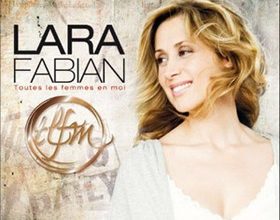Introduction
If someone says: I like this pair of around you, do you instantly presume their knowledge or background? Whether we like it or not, grammar is an influential tool and can leave a goodnot so good mark. So, if someone not knowing the proper grammar binoculars is your pet peeve, or if you do not wish to embarrass yourself in front of your new hunting friends, keep on reading, and let us dive into the world of grammar.
I’m going to shamelessly repurpose the comments to answer this question:
My glasses were lying on the table
These binoculars were gifted to me
Side note #2: FumbleFingers says that «these binoculars were given to me» is more common than «these binoculars were gifted to me». I actually prefer to use «to gift» as a verb where appropriate, so it’s likely just personal choice.
I never hear «scissor» or «pant» or «jean». It’s always «scissors», «pants», and «jeans», respectively. Are they considered plural?
asked Dec 3, 2014 at 14:23
Yes, these words only have a plural form and require the verb in the plural. A list of such words would be very long and, to mention just a few:
- glasses (spectacles)
- binoculars
- tweezers
- pajamas, pyjamas
- knickers
- clothes
- belongings
but beware of «maths» and «aerobics» which are always singular.
answered Dec 3, 2014 at 14:50

47 gold badges163 silver badges291 bronze badges
They are termed as duals : denoting a form of a word indicating
that exactly two referents are being referred to.
The singular form is commonly used in compound words such as: scissor-hands, spectacle-case etc.
Scissor used in the singular as a verb may not be grammatically wrong.
answered Dec 3, 2014 at 14:58
4 gold badges29 silver badges64 bronze badges
Words like «jeans», «scissors», «pants» are non-count nouns. Anything that you cannot buy as a single item (I’d like to buy 1 pant, please) or items that can only be counted in terms of «X’s of Y» (pairs of pants/bottles of milk/grains of sand) are non-count.
They don’t truly exist as singular or plural. However, we generally use plural verbs with them. «My pants are torn» not «My pants is torn.»
Yes, they’re plural as Centaurus says. You would say «pass me those binoculars», never «pass me that binoculars»* or «pass me that binocular»*. But as Xen2050 points out, many of those can be used with the classifier «pair» («A pair of binoculars», «a pair of knickers») in which case the head of the noun phrase is the singular «pair», making the entire noun phrase singular.
Beware of a couple of alternative meanings, though. Centaurus has already flagged «glasses» as only always being plural when it refers to the things you wear in front of your eyes — the type of glass one drinks from behaves «normally» as a known. I avoided using «spectacles» in the clarification, though, because that too has another meaning (noteworthy sights) that can be singular. Similarly, «knicker» is (somewhat archaic) British slang for a pound, and as far as I can tell stays the same in singular and plural.
answered Dec 3, 2014 at 15:04
2 silver badges4 bronze badges
English has a lot of particularities as to numerus (singular and plural). One group of plural nouns are things that consist of two parts. In English grammars these nouns are often called «pair nouns».
Such nouns are
scissors, tongs, spectacles, glasses, compasses
I would not mix these pair nouns with other nouns used in plural form as clothes, belongings etc.
The Oxford Guide to English Grammar has pair nouns in paragraph 155. In other languages these pair nouns in plural form may correspond to a noun in singular as
in German Schere (singular) for scissors.
answered Dec 9, 2014 at 15:26

6 gold badges22 silver badges56 bronze badges
I think they are plural, sort of, so far as they each have two (nearly identical) pieces (each leg, scissor blade/side) so they’re like a set. A pair of pants/jeans, or scissors.
Maybe someone knows the history of the words? Were pants worn one leg at a time, separately, somewhere in the past?
answered Dec 3, 2014 at 14:30

Yes, the above mentioned words are plural. If you mean ‘a pair of scissors’ than rules for singular nouns apply.
answered Dec 3, 2014 at 14:39
Есть разделы грамматики, которые только кажутся простыми, и им обычно не уделяют должного внимания. Из опыта знаю, что как раз именно на этих “простых” правилах и спотыкаются многие учащиеся и делают досадные ошибки, за которые снимаются драгоценные баллы при сдаче тестов TOEFL или любых других тестов.
Один из таких разделов — это правильное определение единственного и множественного числа существительных. Казалось бы , что тут трудного: прибавляем суффикс “S” и получаем множественное число. Это общее правило, которое все знают. Но есть и исключения из общего правила и “разногласия” между английским и русским языками. Как правильно прибавлять суффикс “S” и потом читать слова с суффиксом “S” — читайте в сообщении: Образование и чтение формы –“S”.
Я уже рассказывала об исключениях в образовании множественного числа. Теперь поговорим о расхождениях, которые касаются единственного и множественного числа, между английским и русским языками.
Напоминаю,что в английском языке, слова, которые заканчиваютя на букву “S” могут быть:
1. Существительные во множественном числе. Например:
a pen- pens
a boy — boys
2. Глаголы в настоящем неопределенном времени (Present Indefinite Tense), если подлежащее — это третье лицо единственноного числа (he, she, it); Например :
He reads. My sister works.
3. Cуществительные в притяжательном падеже: например:
My brother’s wife.
Во всех трех случаях окончание “S”– это суффикс, который присоединяется и отсоединяется.
Слов, которые просто сами по себе заканчиваются на “S” ничтожно мало и они всем известны: is, has, was, this, thus, plus, bus.
Но есть существительные с суффиксом “S”, который намертво приклеился к слову, и его НЕЛЬЗЯ отсоединять, то есть такие существительные употребляются только с окончанием “S”. Условно их можно разделить на две группы:
Первая группа. Всегда во множественном числе.
Существительные, которые обозначают предметы, состоящие из двух одинаковых частей (пары), и эти части соединены с одно целое. Например: “брюки”, состоящие из двух штанин. Это обычно одежда или какие-то инструменты. Такие существительные можно навать “парными”.
В английском языке “парные” существительные заканчиваются на неотсоединяемый суффикс “S” и употребляются ТОЛЬКО во множественном числе. Напишу несколько таких существительных:
binoculars = бинокль;
braces = подтяжки;
breeches = штаны, бриджи;
glasses (= spectacles) = очки;
knickers = бриджи;
pants = кальсоны, панталоны, брюки, штаны;
pincers = клещи, щипцы, щипчики, пинцет;
pliers = щипцы, клещи, плоскогубцы;
scales = весы;
pyjamas = пижама;
scissors = ножницы;
shorts = трусики, шорты;
tights = трико;
tongs = щипцы, клещи;
tweezers = пинцет;
Но надо же как-то считать эти предметы, тогда “парные” существительные сочетаются со словом ПАРА = PAIR.
Внимательно посмотрите на примеры:
Индивидуалка Соня (19 лет) т.8 909 992-89-27 Москва, метро Тимирязевская.
Вторая группа. Всегда в единственном числе.
1. Существительные, которые обозначают названия научных дисциплин:
mathematics = математика;
physics = физика;
economics = экономика;
athletics = атлетика;
gymnastics = гимнастика;
dynamics = динамика;
dialectics = диалектика;
automatics = автоматика;
mechanics = механика;
kinematics = кинематика;
linguistics = лингвистика;
politics = политика;
2. Существительные , которые обозначают некоторые заболевания:
mumps = свинка;
measles = корь;
shingles = опоясывающий лишай;
rickets = рахит;
С названиями научных дисциплин и названиями болезней используются слова: KIND /TYPE = ВИД, РАЗДЕЛ, ТИП, КЛАСС, РОД.
Measles is an infectious disease. = Корь — инфекционное заболевание.
Mumps is a infectious disease. = Свинка — инфекционное заболевание.
This type of mumps is dangerous. = Этот тип свинки — опасный.
This kind of measles is dangerous. = Это тип (вид) кори — опасный.
Physics is a science. = Физика — это наука.
These types of physics are difficult to understand. = Эти разделы физики трудны для понимания.
3. Существительные, которые обозначают названия некоторых игр:
billiards = бильярд:
bowls = игра в шары, кегли:
darts = дартс ( метание дротиков)
dominoes = домино:
draughts = шашки; ( Британский английский)
checkers = шашки ( Американский английский)
fives = игра в мяч;
ninepins = кегли;
4. Существительное news = новость, новости.
This is a very good news.
What is the news?
Grammatical Aspect
On the one hand, most uncountable nouns are singular in number. That is why they are paired with the singular forms of the word. in the sentences: there is no the verb ‘to be’ is used in singular and not in plural, for example lease hurry, there are no time.
On the other hand, a few uncountable nouns are plural. They have no singular forms with the same meaning, and cannot be used with numbers. Some examples are: groceries, arms, goods, customs, clothes, regards, The ‘pair of’ binoculars can be omitted if you do not need to be precise about numbers. But for precision, there is no other way, for example: He stole a pair of binocularsHe stole a pair of

Единственное и множественное число (особые случаи)
Иногда мы используем множественное число существительных для одной вещи, которая состоит из двух частей. Например:

pyjamas
(top and bottom)
Эти слова во множественном числе, поэтому и глагол с ними идет тоже во множественном числе:
Вы также можете использовать a pair of (пара) + те слова:
- Those are nice jeans. или That’s a nice pair of jeans. (not a nice jeans)
- I need some new glasses. или I need a new pair of glasses.
Некоторые существительные оканчиваются на -ics, но они обычно не во множественном числе. Например:
athletics economics electronics gymnastics maths (= mathematics) physics politics
News – не во множественном числе (см. урок 70B):
Некоторые слова, заканчивающиеся на -s, могут быть в единственном или множественном числе. Например:
a means of transport
many means of transport
a television series
two television series
a species of bird
200 species of bird
Некоторые существительные в единственном числе часто используются с глаголом во множественном числе. Например:
Все эти существительные относятся к группам людей. Мы часто (не всегда) думаем о них, как о некотором количестве людей (= they), а не как одно целое (= it). Поэтому, мы часто используем и глагол во множественном числе:
- The government (= they) want to increase taxes.
Правительство намерено увеличить налоги. - The staff at the school (= they) are not happy with their new working conditions.
Сотрудники школы недовольны своими новыми рабочими условиями.
Таким же образом, мы часто используем глагол во множественном числе после названия спортивной команды или компании:
- Italy are playing Brazil next week (in a football match).
- Shell have increased the price of petrol.
Мы используем глагол во множественном числе с police:
Заметьте, что мы говорим a police officer / a policeman / a policewoman (not a police).
Множественным числом слова person будет people, а не persons (обычно):
- He’s a nice person. but They are nice people. (not nice persons)
- Many people don’t have enough to eat. (not Many people doesn’t)
Мы думаем о a sum of money, a period of time, a distance и др. как о едином целом. Поэтому мы используем глагол в единственном числе:
- Twenty thousand pounds (= it) was stolen in the robbery. (not were stolen)
- Three years (= it) is a long time to be without a job. (not Three years are)
- Six miles is a long way to walk every day.
Упражнения
1. Закончите каждое предложение, используя слово из разделов A или B. Иногда вам нужно добавить неопределенный артикль a или some.
- My eyesight isn’t very good. I need .
- is a group of animals or plants that have the same characteristics.
- The bicycle is of transport.
- The bicycle and the car are of transport.
- I want to cut this piece of material. I need .
- A friend of mine is writing of articles for the local newspaper.
- There are a lot of American TV shown on British television.
- While we were out walking, we saw many different of bird.

2. В каждом примере слова слева связаны с какой-либо деятельностью (например, спорт или учебный предмет). Напишите название этой деятельности. Начало слова дано..
computer silicon chip video games
3. Отметьте галочкой правильную форму глагола: в единственном числе или во множественном. В одном предложении возможны оба варианта.
- Gymnastics is / are my favourite sport. (is – правильный вариант)
- Physics was / were my best subject at school.
- Can I borrow your scissors? Mine isn’t / aren’t sharp enough.
- Fortunately the news wasn’t / weren’t as bad as we expected.
- Where does / do your family live?
- Three days isn’t / aren’t long enough for a good holiday.
- I can’t find my binoculars. Do you know where it is / they are?
- It’s a nice place to visit. The people is / are very friendly.
- Does / Do the police know how the accident happened?
- I don’t like very hot weather. Thirty degrees is / are too hot for me.
4. Большинство этих предложений неправильны. Исправьте их, если необходимо.
Three years are long time to be without a job.
The government want to increase taxes.
Susan was wearing a black jeans.
Brazil are playing Italy in a football match next week.
I like Martin and Jane. They’re very nice persons.
I need more than ten pounds. Ten pounds aren’t enough.
I’m going to buy a new pyjama.
The committee haven’t made a decision yet.
There was a police directing traffic in the street.
What is the police going to do?
This scissors isn’t very sharp.
Examples
- Take a look at my new binoculars, aren’t they pretty? eaning a single pair of binoculars)
- Meaning several pairs of binoculars
- For a good hunt you also need good binoculars. (Meaning a single pair of binoculars)
- I am no longer allowed into their store as I destroyed their binoculars. (Can mean either several pairs of binoculars or a single pair of binoculars)

Conclusion
Even the most intelligent people frequently make writing and speaking mistakes and not realizing it. The word binoculars takes on a very rare and specific form called the binary plural, and now that you know this, there is no need to worry – just enjoy your hunting trip and maybe impress your hunting friends with your newly gained knowledge.



